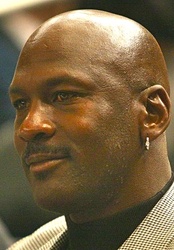
First, great leaders have a high level of individual achievement or prominence. They are very good at what they do. Others recognize their abilities to produce or excel. The great NBA player Michael Jordan comes to mind. Jordan was an incredible offensive and defensive basketball player who won many individual NBA awards.
Second, great leaders elevate the performance of those around them. They move the bar higher. They are inspirational. Michael Jordan elevated the play of his teammates. Jordan and his Chicago Bulls teammates won six NBA championships.
Third, great leaders are likable. People enjoy being around them. Jordan’s teammates liked him. I knew someone who grew up with Jordan. This person could talk for hours about hanging out with Jordan back in high school, and he told these stories with great affection. Jordan was a very likeable person.
My take-aways:
Leadership is about inspiring others. Carter’s observations about great leaders make sense. It is easier to follow an individual who sets the example through his or her achievements – “This person knows how to do this.” “This person gets things done.” “Better to work with this person because they are going places.” Perhaps the motivation is contagious. The great leader may set a new model for what should and can be achieved. And if this person is fun to be around, a likeable person, then he or she will create positive affect and an environment where more is possible.
We all probably will not be truly great leaders but Carter’s work speaks to all who lead:
1. Be expert, the very best you can be, at whatever you do.
2. Be a positive role model for any who observe you, look to you.
3. Just be a nice person.
Carter, L. F. (1951). Some research on leadership in small groups. In H. Guetzkow, Groups, Leadership, and Men. Pittsburgh, PA: Carnegie Press.
Image of Michael Jordan from: http://en.wikipedia.org/wiki/File:Michael_Jordan.jpg
Used with permission. http://creativecommons.org/licenses/by-sa/2.0/deed.en
 RSS Feed
RSS Feed